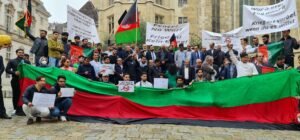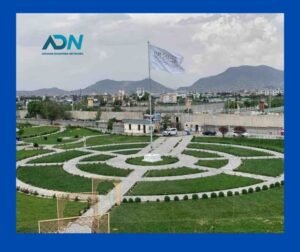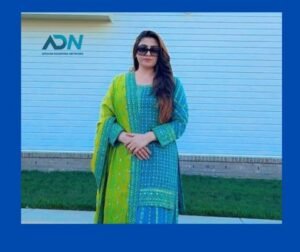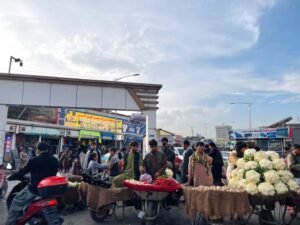Asylum, aliens law and citizenship in Austria
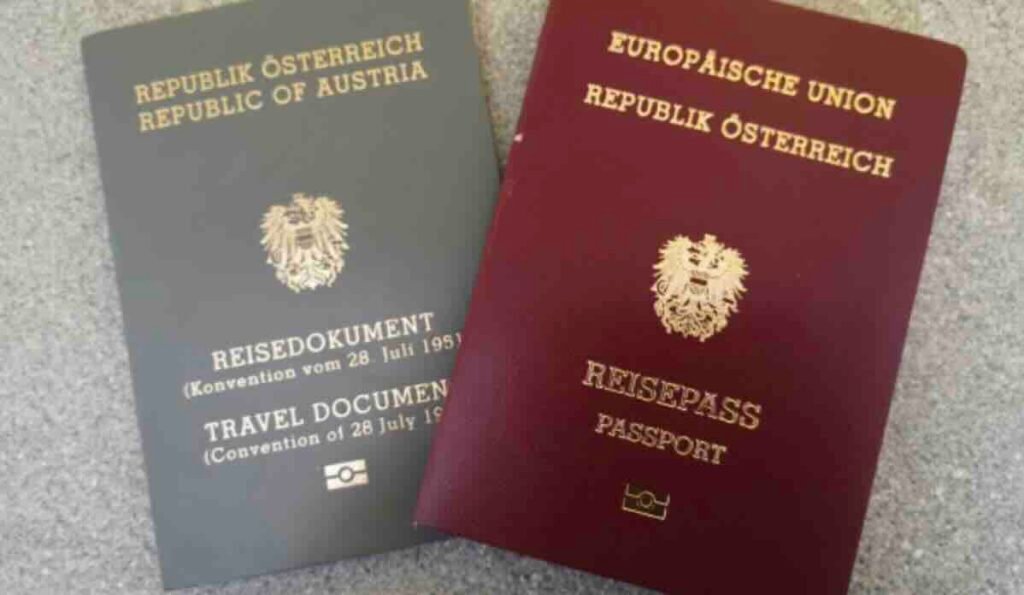
Report of the webinar with Dr. Norbert Kittenberger
At the invitation of the VIDC and the sports and cultural association “NEUER START”, a webinar was held on September 12, 2024, in which lawyer Dr. Norbert Kittenberger provided insights into asylum, immigration and citizenship law. The PowerPoint presentation is available here.
Course of the asylum procedure
The asylum procedure in Austria begins with an asylum application to the police. After the initial police interview, the admission procedure begins, in which the application is rejected if Austria is not responsible. This is the case, for example, if Austria has already rejected the asylum application of this person, if this person has already found protection in another safe country or if another EU country is responsible for the asylum application in accordance with the Dublin III Regulation.
If Austria is responsible for the asylum application, you will be interviewed orally by the Federal Office for Immigration and Asylum (BFA). On the basis of the interview, in which all reasons for fleeing must be stated, a decision is usually issued granting either asylum, subsidiary protection, a residence permit or a residence permit plus, or the asylum application is rejected and/or a return decision is imposed.
Anyone wishing to contest the BFA’s decision must lodge an appeal with the Federal Administrative Court (BVwG) within the appeal period stated on the decision.
The decision of the BVwG can be challenged by means of an appeal to the Administrative Court (VwGH) or by means of a complaint to the Constitutional Court (VfGH). This must be done with a lawyer; if you do not have enough money for this, you can apply for legal aid.
Rights in the asylum procedure
From the fourth month after admission to the asylum procedure, you may work as a dependent employee or do an apprenticeship. The employer or training company must submit an application for an employment permit. In principle, an asylum seeker may work independently from the fourth month after submitting their asylum application. (The asylum application is generally considered to have been submitted within a few hours or days of its submission). Asylum seekers can also work for the federal government, provinces and municipalities on a non-profit basis and carry out auxiliary work in the accommodation. There is also the “service check” model.
Asylum seekers receive basic care. Basic care includes medical costs, the provision of accommodation or a rent subsidy (varies depending on the federal state, in Vienna € 165 per month for individuals or € 330 for families), food or food allowance of a maximum of € 260 per month, pocket money of € 40 per month, clothing allowance of € 150 per year and € 200 per year for school attendance.
In some federal states, there is a payment card system in which the cash benefits of basic services are booked onto a card that can be used to pay in stores, but also to withdraw cash (at least in Tyrol). The federal government is planning a nationwide payment card system from 2025, but unlike in Tyrol today, it will no longer be possible to withdraw cash with this payment card.
Asylum and subsidiary protection
The prerequisites for the granting of asylum are a well-founded fear of persecution on political, religious, nationality, “racial” or social group grounds, and the absence of grounds for refusal (e.g. committing war crimes).
Subsidiary protection is granted to anyone who cannot credibly demonstrate persecution relevant to asylum, but would be exposed to torture, inhuman or degrading treatment or punishment, the death penalty or arbitrary violence in the context of a conflict if deported, provided there are no grounds for refusal. If a person has a serious illness that cannot be treated in their country of origin, this may be a reason for granting subsidiary protection.
Rights of persons entitled to asylum and subsidiary protection
Asylum grants a right of residence, initially for three years. The authorities check whether asylum needs to be revoked, for example because circumstances in the country of origin have changed. If asylum is not revoked, it is automatically extended for an indefinite period.
Subsidiary protection, on the other hand, is limited to one year. Within this year, the beneficiary of subsidiary protection must apply for an extension. If the reasons for subsidiary protection continue to exist, the associated residence permit for beneficiaries of subsidiary protection is extended for a further two years, in principle for an unlimited number of times.
Persons entitled to asylum and subsidiary protection have unrestricted access to the labor market. Persons entitled to asylum have access to social assistance or minimum benefits, family allowance and childcare allowance. Whether beneficiaries of subsidiary protection can receive minimum benefits is regulated differently from province to province. This is the case in Vienna, but not in Lower Austria. Under certain conditions, beneficiaries of subsidiary protection also have access to family allowance and childcare allowance.
Persons entitled to subsidiary protection and persons entitled to asylum also have rights in connection with family reunification.
Withdrawal of subsidiary protection
Subsidiary protection can be revoked, for example, if the reasons for this no longer exist or if the person entitled to subsidiary protection does not have their main place of residence in Austria or has committed serious crimes. An appeal can be lodged with the Federal Administrative Court against the BFA’s decision to revoke the status. In the appeal, progress in integration should be emphasized, as the state must examine whether residence is granted on the basis of integration in accordance with Art 8 ECHR. The decision of the Federal Administrative Court can be contested before the Administrative Court and the Constitutional Court.
Permanent residence EU
Anyone who has subsidiary protection or asylum can switch to this permanent residence title after 5 years of residence if the legal requirements for this are met, in particular Module 2 of the Integration Agreement is fulfilled, there is a fixed and regular income, there is a legal entitlement to an apartment of a customary size and health insurance cover is provided. Furthermore, you must not be or have been in a marriage, adoption or partnership or be regarded as a threat to public order, security or democracy or be affiliated with extremist or terrorist groups.
Integration Act
Persons entitled to asylum and subsidiary protection aged 15 and over are generally obliged to complete Module 2 of the integration obligation, i.e. they must submit a declaration of integration, take part in a values and orientation course and have German language skills at B1 level. If they do not complete Module 2, their minimum income/social assistance or basic welfare support can be reduced.
Other third-country nationals with certain other residence titles must also fulfill Module 1 in order to extend their residence title.
Austrian citizenship
Awarded after 10 years – Requirements:
- 10 years of uninterrupted, lawful residence: Uninterrupted means that you have not been unlawfully resident in between and have not spent more than one fifth of the time outside Austria.
- 5 years of settlement: This does not include residence permits for students or subsidiary protection. Persons entitled to asylum do not have to fulfill the settlement requirement.
- Module 2 of the Integration Agreement: In certain cases, this is also considered to be fulfilled without an integration test, for example for children under 8 years of age and persons who cannot prove sufficient knowledge of German due to their state of health.
- Positive test on basic knowledge of Austria
- No criminal record: among other things, no conviction to a prison sentence for an intentional offense; no punishments for serious administrative offenses; no residence ban, no proceedings to terminate residence and no enforceable return decision
- Sufficiently secure livelihood: You must have had sufficient net income in 36 months of the last six years. 6 of the 36 months must be immediately prior to the application. There are exceptions for seriously ill people.
- Other requirements: e.g. the applicant must not be a threat to public order and security or Austria’s international relations
Awarded after 6 years – Requirements:
- Basically, as with the award after 10 years, but 6 years of legal and uninterrupted residence are sufficient. Settlement is not required.
- In addition, German language skills at B2 level or sustainable, personal integration, for example through three years of work in the education, social or health sector or voluntary work
Awarded after 15 years – requirements:
- Basically the same as for conferral after 10 years, but settlement is not required. However, residence must be for 15 years.
- In addition, sustainable personal and professional integration must be demonstrated.
Awarded after 30 years – requirements:
- Basically as with the award after 10 years, but the residence does not have to be uninterrupted and legal, but 30 years of uninterrupted main residence in Austria is sufficient.
Procedure for granting citizenship
After a consultation with the authorities, you will be given an appointment to submit your application. As a rule, you will then receive a request to submit further documents and an appointment for the citizenship test. If all requirements have been met, all necessary documents have been submitted and the test has been passed, you will receive a confirmation notice. This is a notification in which the granting of citizenship is assured in the event that the old citizenship is “returned” within two years or at least it can be proven that efforts have been made to return the previous citizenship. However, such a “return” of the old citizenship is not necessary if the law of the country of origin does not allow citizenship to be renounced. Even persons entitled to asylum, who are persecuted in their country of origin, are not generally required to “return” their former citizenship. Depending on the constellation, citizenship is granted after “returning” the former citizenship or even without returning it.
Displaced persons from Ukraine
From 1.10.2024, displaced persons from Ukraine can apply for a Red-White-Red Card plus. Information on this can be found here.
EU asylum reform
Among other things, procedures will be introduced at the external borders for people from countries whose citizens have less than a 20 percent chance of being granted asylum. In such procedures, a decision is to be made within 12 weeks while asylum seekers are detained. If people refuse to leave the country after a negative decision, their detention can be extended to up to 24 months. In crisis situations, these border procedures can be extended to other asylum seekers.
This article was initially published in VIDC website.
Note: The contents of the article are of sole responsibility of the author. Afghan Diaspora Network will not be responsible for any inaccurate or incorrect statement in the articles.



